THCA Flower Phenotype Hunting: Oregon Breeders' Selection Process
The Pacific Northwest has long been recognized as a cannabis cultivation powerhouse, and Oregon stands at the forefront of hemp breeding innovation. Among the most sophisticated processes in modern cannabis cultivation is phenotype hunting—a meticulous art that combines traditional breeding wisdom with cutting-edge scientific analysis. This comprehensive exploration delves into how Oregon's elite breeders are revolutionizing thca phenotype selection through rigorous testing protocols and selective breeding programs.
Understanding Phenotype Hunting in Hemp Cultivation
Phenotype hunting represents the cornerstone of modern cannabis breeding, where skilled cultivators identify and isolate superior genetic expressions within plant populations. In the context of THCA flower production, this process becomes particularly nuanced, requiring breeders to balance cannabinoid profiles, terpene expression, growth characteristics, and commercial viability. The science behind oregon hemp breeding has evolved dramatically, incorporating advanced laboratory testing, environmental control systems, and data-driven selection criteria.
The fundamental principle underlying phenotype hunting involves understanding that each cannabis seed, even from the same parent plants, carries unique genetic potential. While genotype represents the plant's genetic blueprint, phenotype describes how those genes express themselves under specific environmental conditions. Oregon's master breeders have developed sophisticated protocols for evaluating these expressions, creating systematic approaches that identify the most promising candidates for commercial cultivation.
Modern strain development thca requires breeders to consider multiple factors simultaneously. Beyond the obvious metrics of cannabinoid content and terpene profiles, successful phenotype hunters evaluate plant structure, flowering time, disease resistance, environmental adaptability, and post-harvest characteristics. This multidimensional approach ensures that selected phenotypes not only meet laboratory standards but also perform consistently across various cultivation environments and market demands.
The Oregon Advantage in Hemp Genetics
Oregon's unique position in hemp genetics stems from several converging factors that create an ideal environment for genetic selection hemp operations. The state's diverse microclimates, ranging from coastal marine environments to high desert conditions, provide natural testing grounds for phenotype evaluation. This geographic diversity allows breeders to assess how genetic expressions perform across different environmental stresses, creating more robust and adaptable cultivars.
The regulatory framework in Oregon has fostered a culture of innovation in hemp breeding. Unlike many jurisdictions where regulatory uncertainty stifles research and development, Oregon's clear guidelines and supportive infrastructure have encouraged breeders to invest in long-term genetic improvement programs. This stability has attracted some of the industry's most talented geneticists and breeding specialists, creating a concentration of expertise that drives continuous innovation.
Oregon's established agricultural infrastructure provides another significant advantage for phenotype hunting oregon operations. The state's existing network of testing laboratories, research institutions, and agricultural support services creates an ecosystem where breeders can access sophisticated analytical tools and expert consultation. This infrastructure enables more precise phenotype evaluation and accelerates the breeding timeline from initial selection to commercial release.
The collaborative culture among Oregon hemp breeders also contributes to the state's leadership in genetic development. Rather than operating in isolation, many breeding programs share research findings, collaborate on projects, and cross-pollinate ideas. This cooperative approach accelerates innovation and ensures that the entire industry benefits from individual breakthroughs in genetic selection and phenotype identification.
Comprehensive Selection Criteria for Elite Phenotypes
The modern approach to breeding programs thca involves establishing comprehensive selection criteria that evaluate multiple plant characteristics simultaneously. Oregon breeders have developed sophisticated scoring systems that weight different attributes based on market demands, cultivation requirements, and consumer preferences. These criteria serve as the foundation for objective phenotype evaluation and ensure consistency across breeding programs.
Cannabinoid profile analysis forms the primary tier of selection criteria, with particular emphasis on THCA content, stability, and biosynthetic pathway efficiency. Elite phenotypes must demonstrate consistent THCA production across multiple harvests and environmental conditions. Breeders evaluate not only peak cannabinoid concentrations but also the plant's ability to maintain these levels throughout the flowering period and post-harvest stability.
Terpene expression analysis has become increasingly sophisticated, with Oregon breeders utilizing gas chromatography-mass spectrometry (GC-MS) to create detailed terpene profiles for each phenotype candidate. The selection process considers both total terpene content and specific terpene ratios, recognizing that these compounds significantly influence consumer experience and product differentiation. Elite phenotypes must demonstrate consistent terpene production and unique or desirable aromatic profiles.
Physical plant characteristics receive equal attention in the selection process, with breeders evaluating structure, internodal spacing, leaf morphology, and flowering patterns. Plants selected for strain improvement hemp programs must demonstrate vigorous growth, appropriate branching patterns, and efficient light utilization. Disease resistance and pest tolerance have become increasingly important criteria as sustainable cultivation practices gain prominence.
Advanced Testing Methodologies in Phenotype Evaluation
Oregon's leading hemp breeders employ sophisticated testing methodologies that combine traditional cultivation expertise with modern analytical chemistry. The integration of laboratory testing throughout the breeding process enables precise phenotype characterization and eliminates much of the guesswork traditionally associated with cannabis breeding. These methodologies form the backbone of successful genetics research oregon operations.
Chromatographic analysis serves as the primary tool for cannabinoid and terpene profiling, with high-performance liquid chromatography (HPLC) providing detailed cannabinoid maps throughout the plant's lifecycle. Advanced testing protocols evaluate cannabinoid biosynthesis patterns, enabling breeders to identify plants with superior enzyme efficiency and metabolic pathways. This level of analysis ensures that selected phenotypes will maintain consistent cannabinoid production across various cultivation conditions.
Molecular genetic analysis has revolutionized phenotype identification, allowing breeders to correlate specific genetic markers with desirable traits. DNA sequencing and marker-assisted selection enable more precise parent selection and offspring evaluation. These techniques significantly reduce the time required for phenotype identification and increase the probability of selecting superior candidates.
Environmental stress testing forms another crucial component of the evaluation process, with phenotype candidates subjected to controlled stress conditions to evaluate resilience and adaptability. These tests simulate various environmental challenges, including temperature fluctuations, humidity variations, nutrient deficiencies, and light stress. Plants that maintain quality and yield under stress conditions are prioritized for cultivar development thca programs.
Cultivation Environment Optimization for Phenotype Expression
The relationship between cultivation environment and phenotype expression represents one of the most critical aspects of successful hemp breeding. Oregon breeders have developed sophisticated environmental control systems that optimize conditions for phenotype evaluation while maintaining consistency across testing cycles. Understanding how environmental factors influence genetic expression enables more accurate phenotype assessment and better prediction of commercial performance.
Indoor thca flower cultivation provides the highest level of environmental control, enabling breeders to create optimal conditions for phenotype expression while minimizing external variables. Advanced climate control systems maintain precise temperature, humidity, and atmospheric composition throughout the evaluation period. LED lighting systems with programmable spectrums allow breeders to optimize photosynthetic efficiency and influence secondary metabolite production.
Controlled environment cultivation also enables accelerated breeding cycles, with some Oregon facilities achieving multiple evaluation cycles per year. This acceleration significantly reduces the time required for phenotype identification and strain development, enabling breeders to respond more quickly to market demands and consumer preferences.
Outdoor thca flower evaluation provides essential data on phenotype performance under natural conditions. Oregon's diverse outdoor environments serve as testing grounds for evaluating how genetic expressions respond to seasonal variations, natural light cycles, and environmental stresses. Phenotypes that perform well in controlled environments must also demonstrate adaptability to outdoor cultivation conditions.
Outdoor evaluation protocols include multi-site testing across different elevations, soil types, and microclimates. This comprehensive approach ensures that selected phenotypes will perform consistently across various commercial cultivation scenarios. The integration of outdoor performance data with controlled environment results provides a complete picture of phenotype potential.
Greenhouse thca flower cultivation represents a hybrid approach that combines environmental control with natural light utilization. Advanced greenhouse facilities in Oregon feature climate control systems, supplemental lighting, and automated irrigation systems that optimize growing conditions while maintaining cost-effectiveness. This cultivation method provides valuable data on phenotype performance under semi-controlled conditions.
Selective Breeding Strategies and Genetic Improvement
The implementation of selective breeding hemp programs requires sophisticated strategies that balance genetic diversity with trait improvement. Oregon breeders have developed multi-generational breeding programs that systematically improve desired characteristics while maintaining genetic health and vigor. These programs represent long-term investments in genetic improvement that pay dividends through superior cultivar development.
Population genetics principles guide breeding program design, with careful attention to maintaining genetic diversity while selecting for improved traits. Breeders utilize various mating strategies, including backcrossing, outcrossing, and inbreeding, depending on specific breeding objectives. The selection of breeding parents involves comprehensive evaluation of not only individual performance but also genetic compatibility and complementary traits.
Advanced breeding techniques, including embryo rescue, tissue culture, and molecular markers, accelerate genetic improvement while maintaining precision. These technologies enable breeders to overcome traditional breeding limitations and achieve genetic gains that would be impossible through conventional methods alone. The integration of biotechnology with traditional breeding expertise creates powerful tools for cultivar development.
Quality Assurance and Consistency in Phenotype Selection
Maintaining consistency across thca flower cultivation operations requires robust quality assurance protocols that ensure selected phenotypes meet established standards. Oregon breeders have implemented comprehensive quality management systems that track phenotype performance from initial selection through commercial production. These systems provide the documentation and traceability required for successful commercialization.
Statistical analysis plays a crucial role in phenotype evaluation, with breeders utilizing advanced statistical methods to analyze performance data and identify significant differences between candidates. Multiple replications, randomized experimental designs, and appropriate statistical tests ensure that selection decisions are based on reliable data rather than random variation.
Standardized evaluation protocols ensure consistency across different facilities and breeding programs. These protocols specify testing conditions, sampling procedures, analytical methods, and evaluation criteria. The standardization of evaluation methods enables meaningful comparisons between phenotypes and facilitates collaboration between breeding programs.
Market-Driven Selection and Consumer Preferences
The commercial success of phenotype hunting depends on understanding and responding to market demands and consumer preferences. Oregon breeders conduct extensive market research to identify trends, preferences, and unmet needs in the premium indoor thca market. This market intelligence guides breeding objectives and selection criteria, ensuring that developed cultivars meet consumer expectations.
Consumer preference studies evaluate various aspects of cannabis experience, including aroma, flavor, potency, and effects. These studies provide valuable feedback on phenotype characteristics that influence consumer satisfaction and purchase decisions. The integration of consumer feedback into breeding programs ensures that genetic improvement efforts align with market demands.
Market analysis also considers production economics, with breeders evaluating the commercial viability of selected phenotypes. Factors such as yield potential, cultivation requirements, pest resistance, and processing characteristics influence the commercial success of new cultivars. The most successful breeding programs balance consumer preferences with production economics to create commercially viable products.
Future Directions in THCA Phenotype Hunting
The future of phenotype hunting in Oregon hemp breeding will likely see continued integration of advanced technologies and analytical methods. Genomic selection, artificial intelligence, and machine learning applications promise to revolutionize phenotype identification and breeding efficiency. These technologies will enable more precise prediction of phenotype performance and accelerate genetic improvement.
Climate change adaptation represents an emerging priority in breeding programs, with breeders developing phenotypes that can thrive under changing environmental conditions. Traits such as heat tolerance, drought resistance, and adaptability to extreme weather events will become increasingly important selection criteria.
Sustainability considerations are driving the development of phenotypes that require fewer inputs while maintaining quality and yield. Water-efficient cultivars, disease-resistant genetics, and plants that optimize nutrient utilization align with industry sustainability goals and regulatory requirements.
The integration of precision agriculture technologies with phenotype evaluation will provide unprecedented insights into plant performance and environmental interactions. Sensor networks, automated data collection, and real-time monitoring systems will enhance the precision and efficiency of phenotype hunting operations.
Conclusion: Oregon's Leadership in Hemp Genetic Excellence
Oregon's position as a leader in hemp breeding and phenotype hunting reflects the state's commitment to scientific excellence, regulatory support, and collaborative innovation. The sophisticated approaches developed by Oregon breeders serve as models for the industry, demonstrating how systematic phenotype hunting can produce superior genetics that meet both consumer demands and commercial requirements.
The success of Oregon's breeding programs demonstrates that effective phenotype hunting requires the integration of multiple disciplines, including genetics, analytical chemistry, cultivation science, and market research. The holistic approach taken by Oregon breeders ensures that selected phenotypes represent true improvements over existing genetics and contribute to the continued evolution of the hemp industry.
As the hemp industry continues to mature, the importance of sophisticated breeding programs and phenotype hunting will only increase. Oregon's pioneering work in this field positions the state to continue leading innovation in hemp genetics, contributing to the development of superior cultivars that serve consumers, cultivators, and the broader industry.
The investment in phenotype hunting and genetic improvement made by Oregon breeders today will determine the quality and diversity of hemp genetics available to future generations. Through continued commitment to scientific excellence and systematic breeding approaches, Oregon will maintain its position at the forefront of hemp genetic development, contributing to the global advancement of cannabis cultivation and breeding science.

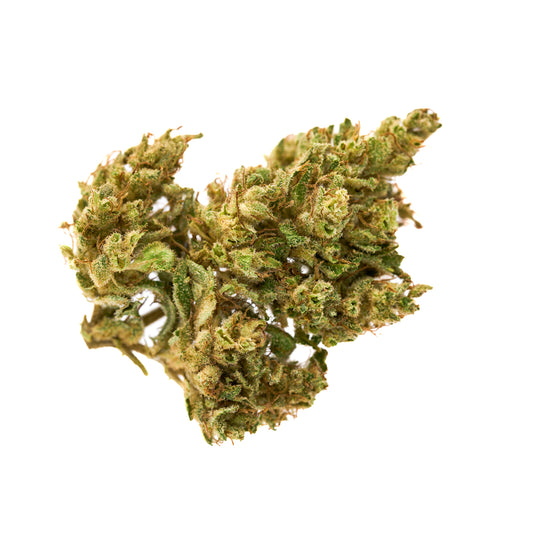
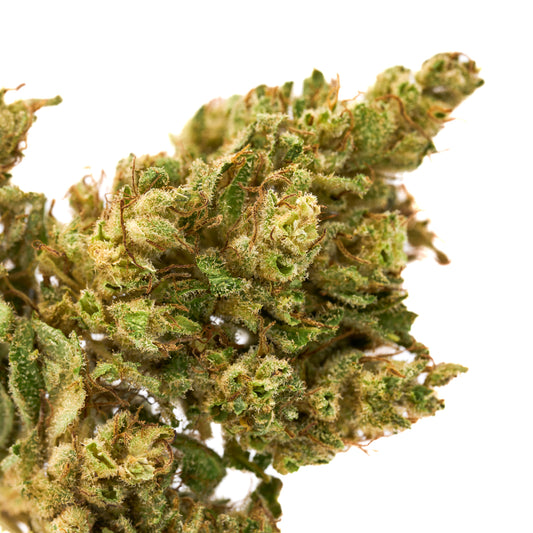
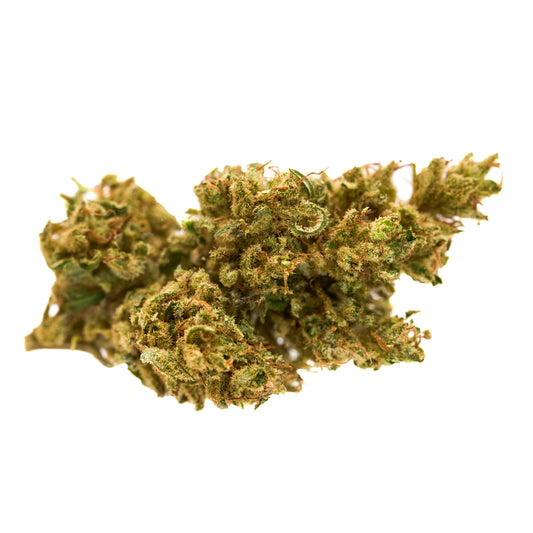
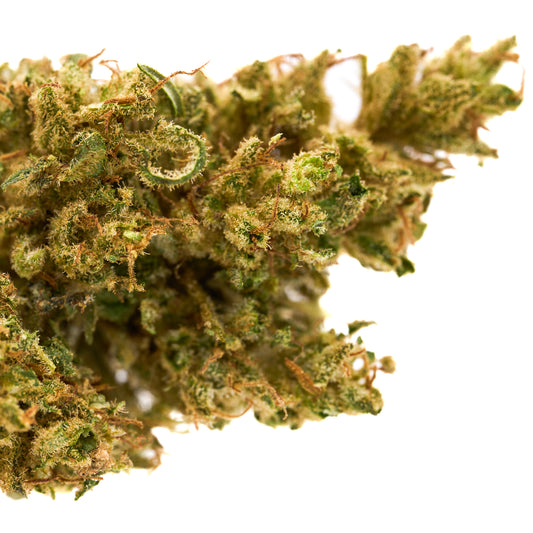
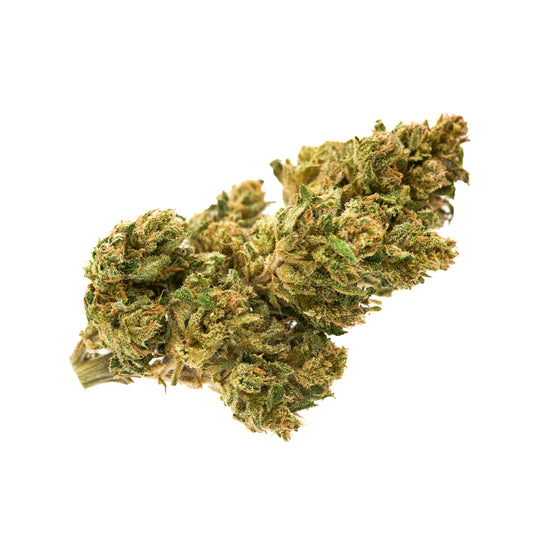
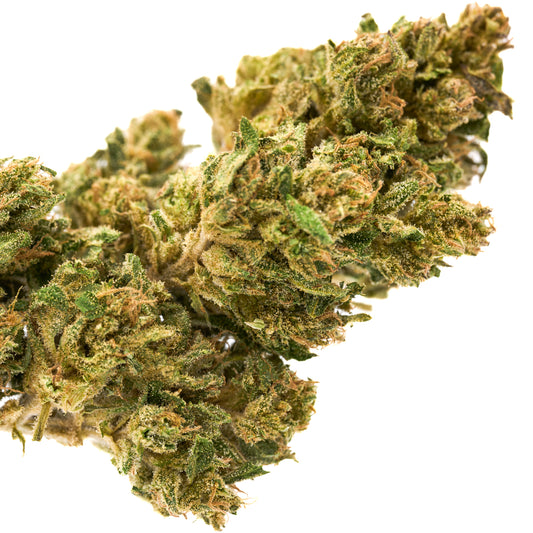



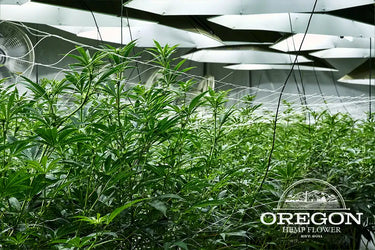

Leave a comment
Please note, comments need to be approved before they are published.